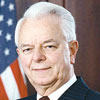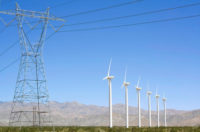After Democrats' takeover of the Senate and House, lawmakers in line to chair Capitol Hill committees already are outlining priorities for the new Congress. On environmental and labor issues, Democrats' agendas will be radically different from the GOP's. But observers don't expect major changes on public works funding.
|
Likely House Committee Chairs
|
In the Senate, the most dramatic shift will be on Environment and Public Works, where liberal Barbara Boxer (Calif.) on Nov. 14 was named chair, succeeding conservative James Inhofe (Okla.). Boxer "has been one of the staunchest environmental advocates in the Senate, which is a strong contrast with Senator Inhofe," says Liz Birnbaum, American Rivers' vice president for government affairs.
"Nowhere is there a greater threat to future generations than the disastrous effects of global warming," says Boxer. She hopes eventually to move legislation. National Environmental Trust President Phil Clapp expects "a battle between a weaker alternative and a stronger alternative to see which can get more votes." The "EPW" panel also has the Senate lead on highway and Corps of Engineers civil works policy. In votes leading up to 2005's SAFETEA-LU bill, Boxer consistently supported increased transportation investment, says David Bauer, American Road & Transportation Builders Association senior vice president for government affairs. Boxer is not expected to oppose infrastructure programs. Larry Bory, HDR vice president for federal government relations, says, "The real question is what kind of strings come with them," such as environmental reviews.
In the House, the new Transportation and Infrastructure Committee chairman is expected to be James L. Oberstar (Minn.). "Clearly he's going to be more pro-environmental, more pro-transit, more pro-rail perhaps, than the current Republican leadership," says Cathy Connor, Parsons Brinckerhoff senior vice president for government affairs. He also does not like tolls, calling them "discriminatory." Oberstar says he will focus on SAFETEA-LU technical corrections and water resources bills, if they do not pass in the lame duck.
|
Expected Senate Committee Chairs
|
Aviation programs are up for renewal in 2007. A battle is brewing over whether to change the fees and charges that help pay for airport and air-traffic infrastructure. Oberstar says abolishing the current ticket tax is "a dumb idea."
Unions will see two of their closest allies, Sen. Edward M. Kennedy (D-Mass.) and Rep. George Miller (D-Calif.) take charge of labor committees. Ironworkers' union President Joe Hunt says he has worked with Miller and adds, "I think we'll have a good team with him as chairman."
Unions back a boost in the federal minimum wage. Labor also will push for a bill to make organizing easier by requiring employers to recognize a union if a majority of workers petition for representation.
At Appropriations, the gavel will go to Robert C. Byrd (W.Va.), who chaired the panel twice before and is an advocate of public works spending. Rep. David R. Obey (Wis.) is expected to head House Appropriations. The big issue for appropriators next year is how large the budget allocations will be, says HDR's Bory.
On tax committees, Sen. Max S. Baucus (Mont.) is in line to head the Finance panel and Rep. Charles B. Rangel (N.Y.) is expected lead Ways and Means. Repealing the estate tax, a top item for construction groups, does not seem to be a priority. Baucus has supported "at least a permanent solution to dealing with the estate tax," says Macey Davis, National Federation of Independent Business tax counsel. But she says, "If we see any sort of compromise it might not be as generous as what we saw in the last Congress."
Rangel wants to extend breaks expiring Dec. 31, including a research and development credit, in the lame duck. He favors alternative minimum tax relief but opposes rolling back existing tax cuts.










Post a comment to this article
Report Abusive Comment